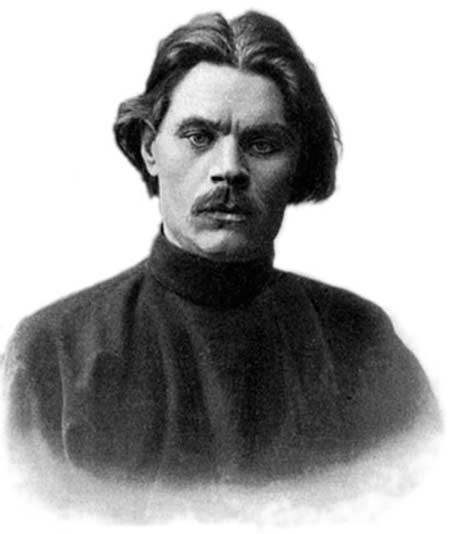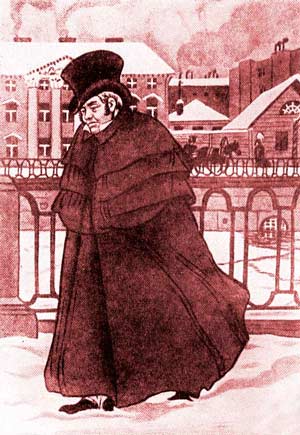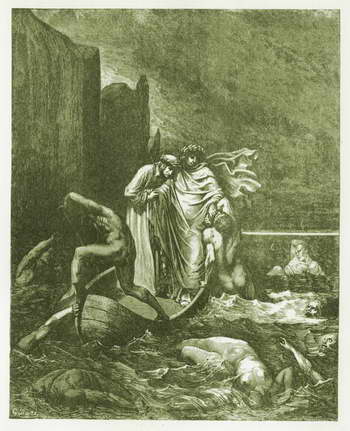Akhmatova and Tsvetaeva – Comparison
 Probably in the distant future and for our era will find an elegant synthesis. Contradictions will become dull, contrasts will be extinguished, variegation will be reduced to unity, and a “consonant chorus” will turn out from discord. The future scientist, fascinated by harmony, will brilliantly show the “uniform style” of our time. But what a pity for our disagreement, our living diversity, even our absurdity. And no “idea” will reconcile us with the transformation into masks of those persons whom we knew and loved.
Probably in the distant future and for our era will find an elegant synthesis. Contradictions will become dull, contrasts will be extinguished, variegation will be reduced to unity, and a “consonant chorus” will turn out from discord. The future scientist, fascinated by harmony, will brilliantly show the “uniform style” of our time. But what a pity for our disagreement, our living diversity, even our absurdity. And no “idea” will reconcile us with the transformation into masks of those persons whom we knew and loved.
The complexity and inconsistency – the features of our era – we will keep them carefully. What is valuable to us now is not common, connecting our poets into groups and schools, not elements of similarity — always external and empty. Private, personal, irreducible, disuniting – that’s what interests us.
Marina Tsvetaeva: the path to the loop
Marina Tsvetaeva is one of the most peculiar figures in modern poetry. You can not love her too loud voice, but it can not be heard. Her manners are sometimes too cheeky, her expressions are vulgar, her fussiness is often tiresome, but she does not want to be the other, and there is no need to. All this she has is genuine: a bright blush, a burning, unyielding temper, and a Moscow chant, and a mischievous laugh.
And next – another image – another woman poet – Anna Akhmatova. And both of them – so incomprehensibly different – contemporaries.
Anna Akhmatova. Life and art. Lecture
Paphos Tsvetaeva – Moscow, golden domes, bell ringing, old intricate, carved skates, frightened alleys, pomp, variegation, conglomeration of life, and a fairy tale, and the song of free and boldness and pilgrimage, and Byzantium, and the Golden Horde.
I’m in Moscow – the domes are burning!
My bells are ringing in Moscow!
And the tombs in a row I stand,
In them the queens are asleep, and the kings.
Here is the warehouse of a folk song with repetitions and parallelism that are usual for it; Chanting with “swinging” is a valiant youthfulness. Akhmatova – St. Petersburg; her love for her hometown is enlightened by air sorrow. And she puts it in cold, classic lines.
But no matter what I swap lush
Granite city of glory and misfortune.
Tsvetaeva is always on the move; in her rhythms – rapid breathing from a quick run. She seems to be talking about something in a hurry, out of breath and waving her arms. Ends – and will rush off further. She is fidget. Akhmatova – speaks slowly, in a very quiet voice: half-lying motionless; chilly hands are hidden under their “false-classic” (as Mandelstam put it) shawl. Only in a barely perceptible intonation does a subdued feeling slip. She is aristocratic in her weary poses. Tsvetaeva – a whirlwind, Akhmatova – silence. Persons first and can not discern – so it is agile, so diverse his facial expressions. The second has a clean, frozen profile line. Tsvetaeva is all in action – Akhmatova is in contemplation,
one barely smiles
where the other rumbles with laughter.
Akhmatova’s lyric poetry is elegiac through and through – suffering love, “stifling longing”, unloved or disliked flour, bride’s languor for the dead groom; its background is the four walls of the disgraced room; painful illness bedridden. There is a blizzard outside the window – and she is alone in the approaching twilight. Tsvetaeva’s poetry is healthy, filled with sultry young blood, sunny, sensual. In her frenzy, glee, hops.
The blood that sings wolf,
Blood is a fierce dragon
Blood that blood with milk
He kisses the blood – by force.
The first is defeated, submissive, bashful, the second is the “king-girl”, courageous, belligerent, greedy, and in her love persistent and domineering. The chains of her fingers, tight hugs: that grab – do not release. The whole world is hers; and she takes up all his joys, like pearls on her palm – voluptuously and carefully. It is not enough for it, and lands, and seas, and grasses, and dawns. Everything is looking for, everything is wandering in the steppes, and yes, along the “oxide”: sharp eyes, heart insatiable.
Akhmatova ascends the steps of initiation: from dark love to heavenly love. Her face became thinner, like an icon-painting face, and her body was “thrown”, overcome, forgotten. The past only worries in dreams, she is all in prayer, and lives in a “white room”, in a “cell”. Tsvetaeva – rooted to the ground; clung to her, fragrant and warm, and can not tear myself away. She is jubilant, blooming flesh. What is she to Eternity, when her earthly thirst is not quenched and insatiable.
I drink, do not get drunk. Sigh – and a huge breath
And blood murmur underground rumble.
One already in the realm of shadows: the other does not yet comprehend the possibility of death.
I do not accept eternity
Why bury me?
I did not want to land
From my beloved land.
She loves the magnificence of the church, the solemnity of the rite, the sweetness of prayer. She is devout, but not religious. How differently is expressed by Akhmatova and Tsvetaeva’s love for Russia! The first rises to the true pathos, becomes a prayer for the unfortunate “dark” homeland. She renounces everything personal, drives away the last “shadows of songs and passions”, for her is a homeland in the spirit and she prays
To cloud over dark Russia
Became a cloud in the glory of the rays.



